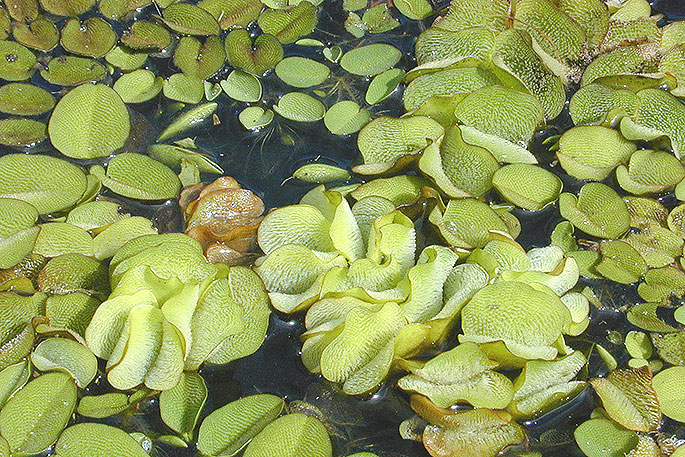The Ministry for Primary Industries started work to eradicate salvinia from the Wairakei StreamPapamoa.
Salvinia is an unwanted organism and notifiable organism under the Biosecurity Act, meaning that it is illegal to grow or share plants.
MPI, Tauranga City Council and the Bay of Plenty Regional Council have worked together to develop treatment options.
The preferred eradication treatment is to use mechanical removal rather than the usual method of spraying with the herbicide, diquat.
This will mean using suction trucks and diggers to remove the weed from the surface of the water.
Local iwi, Ngä Potiki, was also on site to assist with operations during the week to monitor for eels during the suctioning and to ensure appropriate cultural processes are respected.
The wider-iwi groups around Tauranga were onsite to support Ngä Potiki and the eradication team at a karakia ceremony before the removal process began on Wednesday morning.
“The technique is a first in terms of the size of the infested area but we do believe it is a viable and worthwhile option to trial,” says Dr Erik van Eyndhoven, Principal Adviser Conservation. “Should the method prove successful, we will have gained a new tool for managing Salvinia.”
The eradication work is part of a national eradication programme managed by MPI under the National Interest Pest Responses programme.
The initial removal work will be followed by several monthly inspections to remove or treat any remaining plants.
Even very small fragments of salvinia stems can regrow, so it’s important that every remaining fragment is treated.
Monthly inspections will continue until no further plants are found. The final stage is the monitoring period.
Once there is a 2-3 year period clear of salvinia it can then be declared eradicated from the Wairakei Stream. This is expected to be around 2021/2022.
The infestation is along about 1.4km of the Wairakei Stream that runs behind the housing area on Papamoa Beach.
The site is surrounded by residential properties, sports amenities and public access walkways and parks.
The site is marked with tape and warning signs to remind people to keep away from the infested water. Salvinia can completely blanket the surface, causing a drowning hazard.
Dr van Eyndhoven says, “Public safety is imperative. With the additional movement of large machinery at the site, we urge the public to please adhere to the warning signs placed around the infested area.”
MPI’s priority is to rid the country of every salvinia plant. If you have Salvinia in a pond or aquarium on your property or know where it is growing please contact Bay of Plenty Regional Council on: 0800 STOP PESTS [0800 786 773] or MPI on 0800 80 99 66. We will ensure the plants are disposed of safely.
You can find out more about salvinia at mpi.govt.nz/Salvinia. You can also sign up for our email updates: salvinia@mpi.govt.nz



0 Comments
Leave a Comment